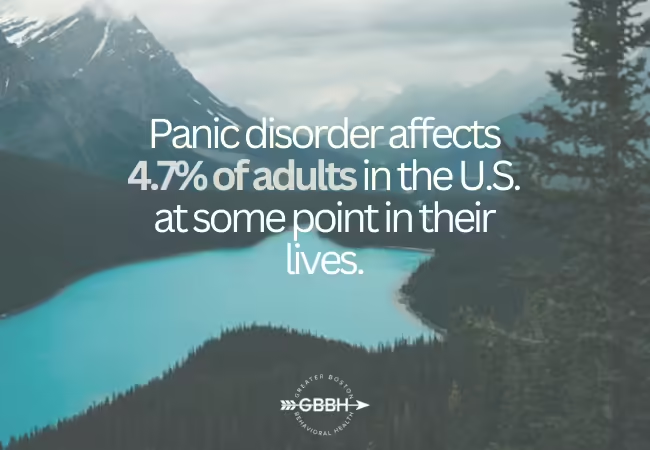Anxiety disorders are among the most prevalent mental health challenges faced by individuals worldwide. Characterized by intense feelings of worry, fear, or apprehension, these disorders can significantly interfere with daily life. From social anxiety and generalized anxiety disorder (GAD) to phobias and panic attacks, the spectrum of anxiety disorders is vast and varied. While it is natural to feel anxious in stressful situations, persistent and excessive worry that disrupts routine functioning often signals the need for professional intervention. Many individuals are turning to specialized programs, such as an Anxiety Treatment Program, to find relief and reclaim control over their lives.
What Are Anxiety Disorders?
Anxiety disorders are mental health conditions characterized by excessive fear, worry, or dread that interferes with daily activities. Unlike normal anxiety, which is temporary, these disorders persist and often worsen without treatment.
How Common Are Anxiety Disorders?
- Anxiety disorders affect approximately 40 million adults in the U.S. annually, making them the most common mental health condition. (Source: Anxiety and Depression Association of America, ADAA)
- Despite being highly treatable, only about 36.9% of those affected receive treatment.
Common Types of Anxiety Disorders
Anxiety disorders encompass a range of conditions, each with unique symptoms and triggers. Below are the most common types:1. Generalized Anxiety Disorder (GAD)
GAD involves excessive, uncontrollable worry about everyday issues such as health, work, or relationships.
Symptoms Include:
- Restlessness or feeling on edge
- Difficulty concentrating
- Muscle tension
- Sleep disturbances
Treatment Options:
A combination of therapy, such as Cognitive Behavioral Therapy (CBT), and an anxiety treatment program can help manage symptoms effectively.
2. Panic Disorder
Panic disorder is marked by recurring, unexpected panic attacks and a fear of future attacks. Panic attacks can mimic symptoms of a heart attack, making them especially distressing.
Symptoms of a Panic Attack Include:
- Rapid heartbeat
- Chest pain or discomfort
- Shortness of breath
- Sweating and trembling
- A sense of impending doom
Treatment Options:
Mental health therapy programs that focus on panic disorders, such as exposure therapy or mindfulness training, are effective in reducing the frequency and intensity of attacks.
3. Social Anxiety Disorder (Social Phobia)
Social anxiety disorder involves an intense fear of being judged, embarrassed, or humiliated in social situations.
Symptoms Include:
- Avoiding social gatherings or speaking in public
- Intense worry about upcoming social events
- Blushing, sweating, or trembling in social settings
Treatment Options:
An outpatient mental health treatment program can provide the tools needed to manage social anxiety while maintaining daily responsibilities.
4. Specific Phobias
Specific phobias are intense, irrational fears of certain objects or situations, such as heights, animals, or flying.
Symptoms Include:
- Immediate anxiety when exposed to the trigger
- Avoidance of the feared object or situation
- Physical symptoms such as sweating or nausea
Treatment Options:
Behavioral therapies, particularly desensitization therapy, are highly effective for treating phobias.
5. Obsessive-Compulsive Disorder (OCD)
OCD is characterized by intrusive, unwanted thoughts (obsessions) and repetitive behaviors (compulsions) performed to alleviate anxiety.
Symptoms Include:
- Fear of contamination or germs
- Repeated checking of locks, appliances, etc.
- Unwanted thoughts about harming oneself or others
Treatment Options:
Specialized mental health therapy programs like CBT or Exposure and Response Prevention (ERP) can help reduce OCD symptoms.
6. Post-Traumatic Stress Disorder (PTSD)
PTSD develops after experiencing or witnessing a traumatic event. Although not solely classified as an anxiety disorder, it shares many overlapping symptoms.
Symptoms Include:
- Flashbacks or intrusive memories
- Hypervigilance or exaggerated startle response
- Avoidance of reminders of the trauma
Treatment Options:
Trauma-focused therapies, including Eye Movement Desensitization and Reprocessing (EMDR), are commonly used in mental health treatment programs for PTSD.
The Role of Treatment Programs in Managing Anxiety
Managing anxiety disorders and panic attacks requires a comprehensive approach. Evidence-based methods such as cognitive-behavioral therapy (CBT), exposure therapy, and medication often form the backbone of treatment plans. Holistic practices like mindfulness meditation, yoga, and breathing exercises can complement these approaches, providing a well-rounded path to recovery. Mental Health Therapy Programs are designed to combine these methods, creating personalized treatment plans that cater to the unique needs of each individual.
An effective Intensive Outpatient Mental Health Treatment program allows individuals to continue their daily routines while receiving the care they need. These programs are particularly beneficial for those with mild to moderate anxiety disorders, as they provide flexibility and accessibility without compromising the quality of care. For more severe cases, intensive therapies within Mental Health Treatment Programs may be required to ensure a stable and supportive recovery journey.
At Greater Boston Behavioral Health, we understand the challenges of living with anxiety. Our team of experienced professionals offers a sanctuary of healing and hope, using evidence-based and holistic approaches to guide individuals toward recovery. Whether you need an Anxiety Treatment Program or a Depression Treatment Program, our compassionate care ensures that your journey is supported every step of the way.
Addressing Co-occurring Disorders
Anxiety disorders often occur alongside other mental health conditions, such as depression or substance use disorders. This intersection complicates the recovery process, making it essential to address all facets of an individual’s mental health. A well-rounded Depression Treatment Program can help tackle these challenges, providing tools to manage overlapping symptoms and improve overall well-being.
For individuals in Boston, access to a Mental Health Treatment Center in Boston ensures that comprehensive care is within reach. These centers offer specialized programs that address co-occurring disorders, blending therapies like dialectical behavior therapy (DBT), trauma-informed care, and relapse prevention strategies. With a team dedicated to breaking down stigma and fostering personal growth, recovery becomes a realistic and attainable goal.
Greater Boston Behavioral Health is proud to serve as a beacon of hope for those navigating complex mental health challenges. Our unique blend of evidence-based therapies and holistic practices empowers individuals to rediscover their strengths, overcome stigma, and build a lasting foundation for wellness. By offering tailored programs in a supportive and empathetic community, we ensure that each individual feels seen, heard, and valued.
Finding the Right Support
Whether you are seeking an Anxiety Treatment Program or exploring the benefits of Outpatient Mental Health Treatment, it’s important to prioritize programs that align with your specific needs. A trusted provider like Greater Boston Behavioral Health offers a range of options, ensuring that care is personalized, compassionate, and effective.
Our Mental Health Therapy Programs are designed to address the unique challenges of each individual. From managing anxiety and depression to supporting those with co-occurring substance use disorders, our approach is rooted in empathy and evidence-based practices.
Recovery is not just about managing symptoms but about embracing a life of resilience, hope, and well-being. With the right support system, such as the programs offered by Greater Boston Behavioral Health, individuals can rediscover joy and rebuild their lives on a foundation of strength and stability.
The Path Forward
Anxiety disorders and panic attacks, while challenging, are manageable with the right interventions and support. Programs like those at Greater Boston Behavioral Health provide individuals with the tools and resources needed to navigate their recovery journey effectively. By addressing both the emotional and physiological aspects of anxiety, these programs empower individuals to lead fulfilling and balanced lives.
If you or a loved one is struggling with anxiety, depression, or related challenges, now is the time to take the first step toward recovery. Explore the options available through an Anxiety Treatment Program, Depression Treatment Program, or Mental Health Therapy Programs to find the path that’s right for you. With Greater Boston Behavioral Health by your side, the journey to healing becomes a shared and supported endeavor, filled with hope and transformation. Call us at (888)278-0716 today to learn more about our services and how we can help you on your journey to recovery!
FAQ on Common Anxiety Disorders and Panic Attacks
What is the difference between anxiety and panic attacks?
Anxiety is a persistent state of worry or fear, while panic attacks are sudden episodes of intense fear or physical discomfort, often occurring without warning.
What are the symptoms of a panic attack?
Symptoms include rapid heartbeat, shortness of breath, chest pain, sweating, trembling, dizziness, and a sense of impending doom.
Are anxiety disorders treatable?
Yes, anxiety disorders are highly treatable through therapy, medication, and specialized programs like mental health therapy programs or an anxiety treatment program.
How can Greater Boston Behavioral Health help with anxiety and panic attacks?
Our mental health treatment center in Boston offers tailored mental health treatment programs, including outpatient therapy, CBT, and mindfulness-based approaches, to help individuals manage anxiety and panic attacks effectively.


